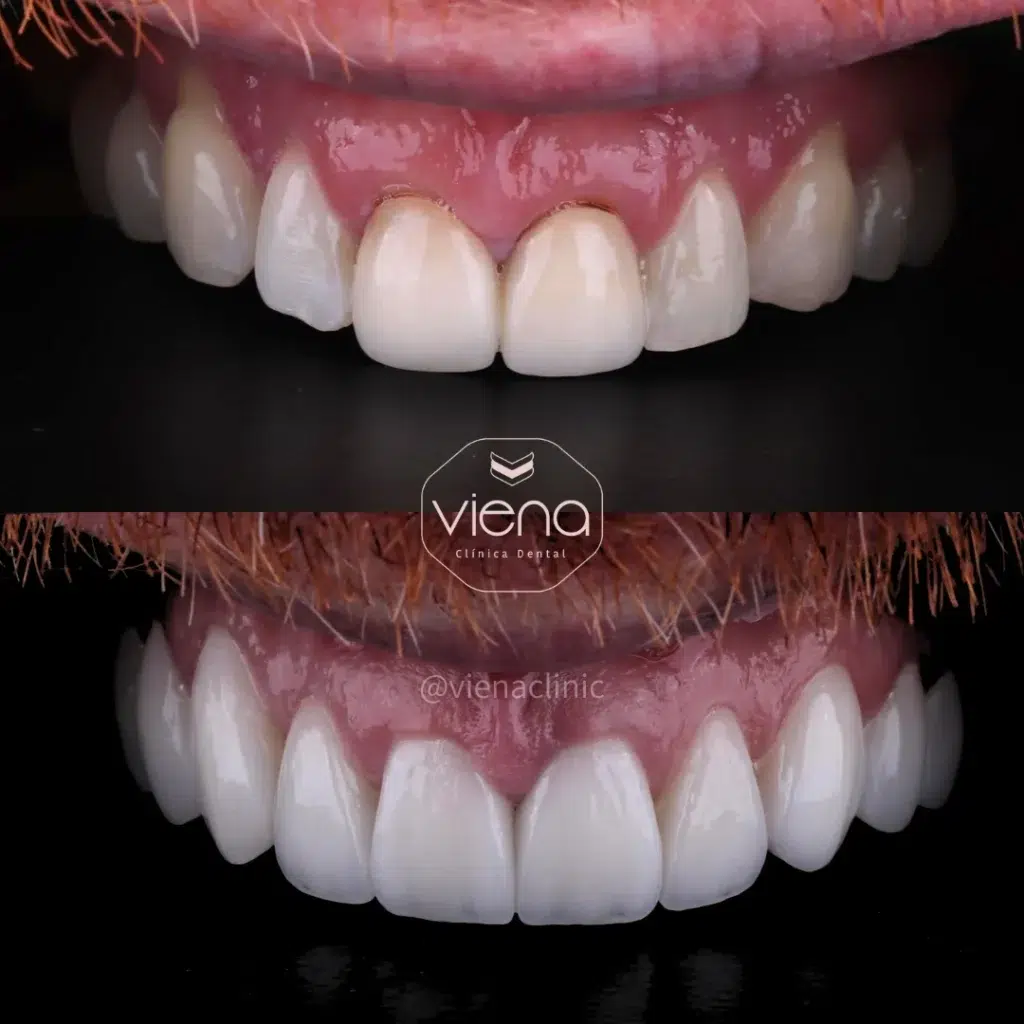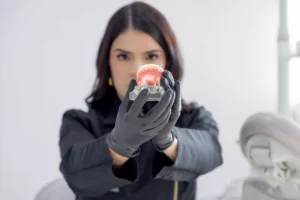Contenido:
ToggleThe truth about Why No Dairy After Dental Implant is clear: there is no scientific evidence that milk, yogurt, or cheese harm healing or osseointegration. In fact, dairy provides calcium and protein that strengthen bone recovery. Focus instead on a balanced diet and vitamin D for implant success
Introduction
Welcome to the intriguing world of dental implants, where smiles are reconstructed and confidence is restored! But wait, what’s this? A rumor floating around that you should avoid dairy after your dental implant surgery? Let’s dive into the science behind this common myth and uncover why no dairy after dental implant surgery is not only unnecessary but also based on misconceptions.
Many patients report being told to steer clear of dairy products post-implant. This advice often stems from the assumption that dairy might upset your stomach during recovery. However, multiple studies have shown that there is no scientific evidence supporting the idea that consuming dairy interferes with healing or osseointegration-the process by which your bone integrates with the implant. In fact, research by Seyedi Moghaddam & Neff (2022), Otto et al. (2025), Lau et al. (2013), and Johansson (2002) indicates that survival and healing rates remain unaffected by dairy intake.
So, what gives? Why has this myth persisted? It likely originates from a well-meaning attempt to guide patients toward a smooth recovery. After all, many foods can cause discomfort post-surgery, but they aren’t necessarily related to how well your implants heal.
Key Takeaway: The idea that you need to avoid dairy after dental implants is outdated. Instead of focusing on what not to eat, let’s explore what really matters for a successful recovery!
This article will cover everything you need to know about dairy and dental implants, including dietary guidelines for optimal healing, practical meal planning tips for implant recovery, and why vitamin D plays a starring role in your journey to a beautiful new smile.
| Aspect | Myth | What Science Really Says | Impact on Osseointegration |
|---|---|---|---|
| Dairy (milk, yogurt, cheese) | Should be avoided after dental implants | Scientific studies show no negative impact; dairy provides calcium and protein that support bone healing | Does NOT affect osseointegration |
| Stomach discomfort | Dairy causes problems in all patients | Only some individuals may experience temporary digestive upset, unrelated to implant healing | No effect on osseointegration |
| Bone healing | Dairy delays bone integration | Evidence shows normal healing rates with or without dairy; nutrients in dairy can actually help recovery | Supports bone health and osseointegration |
| Recovery guidelines | Avoid all dairy foods for safety | Balanced nutrition, hydration, and vitamin D are the real keys for recovery success | Focus should be on overall diet, not dairy restriction |
Understanding the Myth: Why No Dairy After Dental Implant?
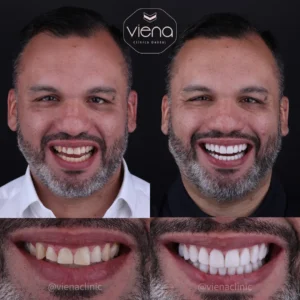
Explanation of the Common Advice Against Dairy
Ah, the infamous dairy dilemma! Many patients are often advised to steer clear of dairy products after dental implant surgery. But why? Well, this advice typically stems from the notion that dairy might cause digestive upset during recovery. Imagine your stomach doing somersaults while you’re trying to heal-no one wants that!
However, let’s set the record straight: there is no scientific evidence supporting the idea that consuming dairy interferes with healing or osseointegration-the fancy term for how your bone integrates with the implant. Studies conducted by Seyedi Moghaddam & Neff (2022), Otto et al. (2025), Lau et al. (2013), and Johansson (2002) have shown that survival and healing rates remain unaffected by dairy intake.
Sources of This Myth and Its Prevalence Among Patients
The persistence of this myth can be traced back to well-meaning advice from dental professionals who want to ensure a smooth recovery. After all, many patients experience discomfort after surgery, and certain foods can exacerbate that feeling. However, it’s crucial to differentiate between foods that may cause temporary discomfort and those that genuinely impact healing.
This misconception has become so widespread that it often leads to unnecessary dietary restrictions post-surgery. It’s almost like saying you should avoid wearing socks because they might make your feet too warm-sure, it’s a possibility, but it doesn’t mean you should toss them out altogether!
Key Takeaway: The idea that you need to avoid dairy after dental implants is outdated. Instead of focusing on what not to eat, let’s explore what really matters for a successful recovery!
Introduction to Scientific Research on Dairy and Dental Implants
Diving into the research reveals some fascinating insights about dairy and dental implants. The studies mentioned earlier consistently show no adverse effects on healing or osseointegration when patients consume dairy products post-surgery.
In fact, dairy can be a beneficial part of your dental implant recovery diet. It is rich in calcium and protein-two essential nutrients for bone health and overall recovery. So rather than avoiding milk or yogurt after your procedure, consider them as allies in your journey toward a beautiful new smile!
The Science Behind Dairy Consumption After Dental Implants
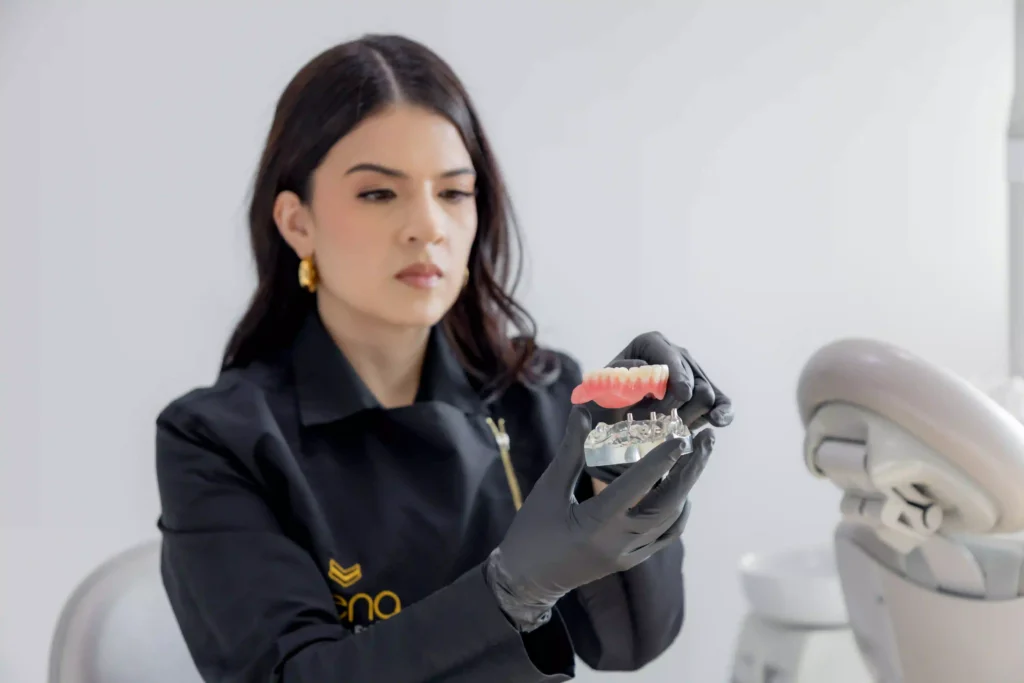
Summary of Key Studies
Let’s break down the science, shall we? Several key studies have tackled the question of why no dairy after dental implant is often recommended. Here’s a quick overview:
- Seyedi Moghaddam & Neff (2022): This study found that dairy consumption had no significant impact on healing rates post-implant.
- Otto et al. (2025): Researchers concluded that dietary restrictions, including dairy, did not correlate with osseointegration success.
- Lau et al. (2013): Their findings supported the idea that milk and other dairy products can be safely consumed without hindering recovery.
- Johansson (2002): This study also indicated that patients who included dairy in their diets experienced normal healing processes.
Findings on Healing Rates and Osseointegration
The crux of these studies reveals a consistent theme: dairy does not interfere with healing or osseointegration. In fact, the nutrients found in dairy-like calcium and protein-are beneficial for bone health. Think of osseointegration as a dance between your bone and the implant; both need to be in sync for a successful outcome. If you remove dairy from your diet, you’re missing out on some excellent partners for this dance!
In terms of numbers, survival rates for dental implants remain high regardless of whether patients consume dairy post-surgery. This means you can enjoy your yogurt or cheese without worrying about compromising your new smile!
Discussion on the Lack of Evidence Linking Dairy to Impaired Recovery
Now, let’s tackle the elephant in the room: why does this myth persist? The idea that patients should avoid dairy likely comes from a general caution around foods that could upset one’s stomach after surgery. It’s like saying you should avoid roller coasters because they might make you dizzy-while true for some, it doesn’t mean you should ban all fun rides!
The truth is many foods can cause discomfort during recovery but do not actually hinder healing processes. By focusing solely on avoiding dairy, patients might miss out on its nutritional benefits that aid recovery. So instead of fearing your morning latte or afternoon cheese snack, consider incorporating them into your dental implant recovery diet.
Key Takeaway: The evidence clearly shows that avoiding dairy after dental implants is unnecessary. Instead, focus on balanced nutrition and hydration to support your healing process!
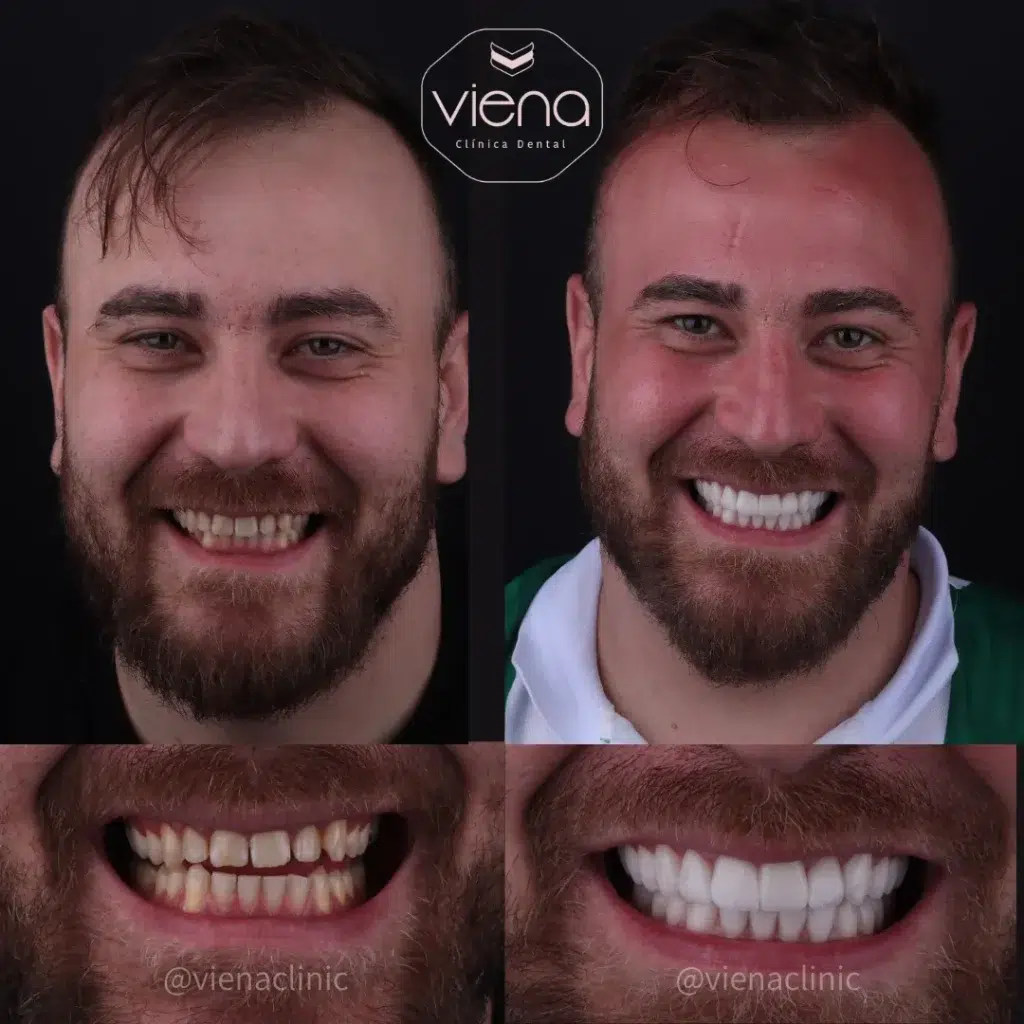
The Origin of the Dairy Myth: Stomach Upset vs. Healing Concerns
Exploration of Gastrointestinal Concerns Post-Surgery
Let’s start by peeling back the layers on this dairy dilemma. Many patients are often told to avoid dairy after dental implant surgery due to concerns about potential stomach upset. Picture this: you just had surgery, and the last thing you want is a digestive drama unfolding in your gut while you’re trying to heal. It makes sense why this advice has taken root.
However, it’s important to note that while some individuals may experience gastrointestinal discomfort from certain foods post-surgery, this does not mean that dairy is universally problematic. In fact, many foods can cause a bit of a ruckus in your stomach after oral surgery-not just dairy. Foods high in sugar, spicy items, or those with tough textures can also lead to discomfort.
So why pick on dairy? This myth likely originated from a general cautionary approach among dental professionals trying to guide patients toward a smoother recovery. But here’s the kicker: discomfort does not equal impaired healing. Just because something might make your tummy grumble doesn’t mean it’s sabotaging your dental implants.
Dairy vs. Other Foods That May Cause Discomfort
Let’s get real for a moment-what else could be causing that post-surgery stomach upset? Here are some common culprits:
- Spicy Foods: These can irritate sensitive tissues and lead to discomfort.
- Hard or Crunchy Items: Think popcorn or chips; they can be tough on your healing gums.
- Sugary Treats: Sugar can exacerbate inflammation and lead to digestive issues.
- Caffeinated Beverages: These can sometimes upset your stomach and lead to dehydration if consumed excessively.
The bottom line? Dairy isn’t the lone villain here; it’s just an easy target among many foods that could potentially cause discomfort during recovery.
Clarification That Stomach Issues Are Not Related to Implant Healing
The persistent myth that you should avoid dairy after dental implants stems from a misunderstanding of how digestion works post-surgery. While it’s true that some people might experience discomfort from consuming milk or yogurt, these issues are generally temporary and do not have any bearing on how well your implants heal or integrate with bone tissue.
This is crucial because focusing solely on avoiding dairy could lead you to miss out on its nutritional benefits-like calcium and protein-which are essential for healing! Think of it this way: avoiding dairy because of potential stomach upset is like refusing to wear shoes because they might pinch your toes; sure, they might be uncomfortable at times, but they also protect your feet!
Key Takeaway: The idea that avoiding dairy is necessary after dental implants is based more on misconceptions than science. Instead, focus on balanced nutrition and hydration for optimal recovery!
Myth vs. Fact: Debunking Common Misconceptions About Dairy and Implants
Myth: Dairy hinders healing after dental implants.
Ah, the classic dairy dilemma! Many patients are often advised to steer clear of dairy products after dental implant surgery. This advice typically stems from the notion that dairy might cause digestive upset during recovery. Picture this: you just had surgery, and the last thing you want is a digestive drama unfolding in your gut while you’re trying to heal. It makes sense why this advice has taken root.
However, let’s set the record straight: there is no scientific evidence supporting the idea that consuming dairy interferes with healing or osseointegration-the fancy term for how your bone integrates with the implant. Studies conducted by Seyedi Moghaddam & Neff (2022), Otto et al. (2025), Lau et al. (2013), and Johansson (2002) have shown that survival and healing rates remain unaffected by dairy intake.
Fact: No scientific evidence supports this claim.
Diving into the research reveals some fascinating insights about dairy and dental implants. The studies mentioned earlier consistently show no adverse effects on healing or osseointegration when patients consume dairy products post-surgery.
In fact, dairy can be a beneficial part of your dental implant recovery diet. It is rich in calcium and protein-two essential nutrients for bone health and overall recovery. So rather than avoiding milk or yogurt after your procedure, consider them as allies in your journey toward a beautiful new smile!
Key Takeaway: The idea that you need to avoid dairy after dental implants is outdated. Instead of focusing on what not to eat, let’s explore what really matters for a successful recovery!
Myth: All patients experience stomach issues with dairy.
The persistence of this myth can be traced back to well-meaning advice from dental professionals who want to ensure a smooth recovery. After all, many patients experience discomfort after surgery, and certain foods can exacerbate that feeling. However, it’s crucial to differentiate between foods that may cause temporary discomfort and those that genuinely impact healing.
Fact: Individual reactions vary, and many foods can cause discomfort.
The truth is many foods can cause discomfort during recovery but do not actually hinder healing processes. By focusing solely on avoiding dairy, patients might miss out on its nutritional benefits that aid recovery. So instead of fearing your morning latte or afternoon cheese snack, consider incorporating them into your dental implant recovery diet.
- Spicy Foods: These can irritate sensitive tissues and lead to discomfort.
- Hard or Crunchy Items: Think popcorn or chips; they can be tough on your healing gums.
- Sugary Treats: Sugar can exacerbate inflammation and lead to digestive issues.
- Caffeinated Beverages: These can sometimes upset your stomach and lead to dehydration if consumed excessively.
The bottom line? Dairy isn’t the lone villain here; it’s just an easy target among many foods that could potentially cause discomfort during recovery.
Key Takeaway: The idea that avoiding dairy is necessary after dental implants is based more on misconceptions than science. Instead, focus on balanced nutrition and hydration for optimal recovery!
The Role of Nutrition in Dental Implant Success
The Importance of a Balanced Diet Post-Implant Surgery
When it comes to recovering from dental implant surgery, nutrition is like the secret sauce that can make or break your healing journey. Think of your body as a high-performance vehicle; if you want it to run smoothly, you need to fuel it with the right ingredients. This is especially true after undergoing a procedure that requires your body to repair itself and integrate an artificial root into your jawbone.
Many patients are left wondering why no dairy after dental implant surgery, but the real question should be: what should you eat? A balanced diet rich in essential nutrients is critical for optimal healing. Foods that are high in vitamins, minerals, and proteins will help speed up recovery and improve osseointegration-the process where your bone fuses with the implant.
So, what does this balanced diet look like? Here’s a quick rundown of must-have food groups:
- Protein: Think lean meats, fish, eggs, and legumes. Protein helps repair tissues and build new cells.
- Fruits and Vegetables: These are packed with vitamins A and C, which are crucial for healing. Plus, they add antioxidants to combat inflammation!
- Whole Grains: Foods like brown rice and quinoa provide energy and fiber to keep things moving smoothly.
- Dairy (or Non-Dairy Alternatives): Rich in calcium and vitamin D-both essential for bone health-these can be beneficial during recovery.
Avoiding dairy isn’t necessary; instead focus on incorporating these elements into your dental implant recovery diet. The goal is to create a nutrient-rich environment that supports healing rather than restricting yourself based on outdated myths.
Key Takeaway: A balanced diet filled with protein, fruits, vegetables, whole grains, and calcium-rich foods can significantly enhance your recovery after dental implants!
Nutrients That Support Healing: Focus on Protein, Vitamins, and Minerals
Your body needs specific nutrients for effective recovery post-surgery. Let’s break down some key players:
- Protein: This macronutrient is essential for tissue repair. Incorporating sources like chicken, fish, tofu or legumes will help rebuild any damaged tissue around the implant site.
- Vitamin D: Often overlooked but incredibly important! Vitamin D helps with calcium absorption-crucial for bone health-and aids in the osseointegration process. Most people are unaware they may be deficient in this vital nutrient!
- Zinc: Found in meats and nuts, zinc plays a role in immune function and wound healing. It can help reduce inflammation around the surgical site.
- Calcium: You already know that dairy products are rich in calcium-but don’t worry if you’re avoiding them! Leafy greens like kale or fortified non-dairy alternatives can also pack a punch when it comes to calcium content.
The combination of these nutrients not only supports healing but also strengthens bones over time. Just remember: it’s not about avoiding foods; it’s about choosing wisely!
If you’re wondering how to incorporate these nutrients into your meals post-surgery without feeling restricted or overwhelmed by dietary guidelines post-dental implants, here’s a sample meal plan idea:
A Sample Day of Eating After Implant Surgery
- Breakfast: Scrambled eggs with spinach (for protein & iron) served with a side of mashed avocado (healthy fats).
- Lunch: Smoothie made with banana (potassium), spinach (vitamins), yogurt (calcium), and almond milk (non-dairy option).
- Dinner: Grilled chicken breast paired with quinoa salad loaded with cucumbers (hydration) & cherry tomatoes (antioxidants).
- Snacks: Hummus with soft pita bread or nut butter spread on soft fruits like bananas or pears!
This meal plan integrates all the necessary macronutrients while keeping things soft enough for comfort during recovery. Plus, it avoids any unnecessary restrictions-goodbye dairy myths!
Culinary Tip: Experimenting with textures can make meals more enjoyable while ensuring you’re getting the nutrients needed for healing!
The Importance of Vitamin D in Bone Healing and Osseointegration
The Role of Vitamin D in Bone Health and Recovery After Surgery
Vitamin D is like the unsung hero of your body, especially when it comes to bone health and recovery after dental implant surgery. Think of it as the backstage crew that ensures everything runs smoothly while you’re out there shining on stage. Without adequate vitamin D, your body struggles to absorb calcium effectively, which is crucial for strong bones and successful osseointegration-the fancy term for how your jawbone integrates with the dental implant.
When you undergo a dental implant procedure, your body needs to rebuild and repair bone tissue around the implant. This is where vitamin D steps in, promoting calcium absorption and supporting the formation of new bone cells. Imagine trying to build a house without enough bricks; that’s what it’s like trying to heal without sufficient vitamin D. So, if you want your new smile to be as solid as a rock, make sure vitamin D is part of your recovery plan!
Statistics on Vitamin D Deficiency in the Population
Now, here’s a shocking statistic: approximately 42% of adults in the U.S. are estimated to be vitamin D deficient! This deficiency can sneak up on you because many people are unaware they are lacking this vital nutrient until they experience health issues. When it comes to dental implant recovery, being among that 42% could hinder your healing process.
Research indicates that individuals with low levels of vitamin D may experience slower healing rates and increased risk of complications after surgery. So while you’re pondering why no dairy after dental implant, consider also checking your vitamin D levels-your bones will thank you!
Key Takeaway: Vitamin D is essential for calcium absorption and bone health. Make sure you’re getting enough of it during your recovery from dental implants!
Evidenced-Based Recommendations for Vitamin D Supplementation
If you’re wondering how much vitamin D you should aim for during your recovery, research suggests that adults typically need about 600-800 IU (International Units) daily. However, some studies indicate higher doses may be beneficial for those undergoing bone-related surgeries like dental implants.
Before jumping into supplementation, it’s always wise to consult with your healthcare provider or dentist. They can recommend specific dosages based on blood tests that measure your current vitamin D levels.
Incorporating dietary sources can also help boost your intake! Foods rich in vitamin D include:
- Fatty Fish: Salmon and mackerel are excellent sources.
- Mushrooms: Specifically those exposed to UV light.
- Fortified Foods: Look for cereals or plant-based milks fortified with vitamin D.
- Egg Yolks: A tasty way to add some extra nutrition!
The bottom line? Don’t underestimate the role of vitamin D in your dental implant recovery diet. It’s not just about avoiding dairy; it’s about ensuring you’re fully equipped nutritionally for optimal healing!
Frequently Asked Questions (FAQ)
Why no dairy after dental implant surgery?
This is a common myth. Many people believe dairy interferes with healing, but scientific studies show there is no evidence that milk, yogurt, or cheese affect osseointegration. At most, some patients may experience temporary stomach discomfort, but it has nothing to do with implant success.
Does dairy affect osseointegration after dental implants?
No. Research consistently shows that dairy does not interfere with bone healing or the integration of the implant into the jawbone. In fact, nutrients like calcium and protein found in dairy may actually support bone strength.
What foods should I avoid after dental implant surgery if not dairy?
The main foods to avoid are spicy, hard, crunchy, or very sugary items that can irritate the surgical site. Alcohol and excessive caffeine are also best limited during recovery. Dairy products, however, can safely be included unless they cause you personal discomfort.
Can I eat yogurt or cheese after getting dental implants?
Yes, yogurt and soft cheeses are actually recommended because they are easy to chew, high in protein, and gentle on the surgical site. They can be part of a soft-food diet that helps with comfort and recovery.
Why do some dentists still say “no dairy after dental implants”?
The myth persists mostly as a precaution. Some dental professionals historically advised avoiding dairy to prevent digestive upset in the first days after surgery. Over time, this caution was generalized into a “rule,” even though it lacks scientific support.
What nutrients really matter for dental implant recovery?
The keys to successful healing are a balanced diet rich in protein, vitamin D, calcium, and zinc. Staying hydrated and avoiding foods that physically disturb the surgical site are more important than eliminating dairy.
Is Colombia a good destination for dental implants compared to other countries?
Yes. Many patients from the U.S. choose Colombia not only because of high-quality dental care and advanced implant techniques, but also because costs are lower than in the U.S. or Mexico, and travel is easier than going to Turkey, which complicates guarantees and follow-up care.
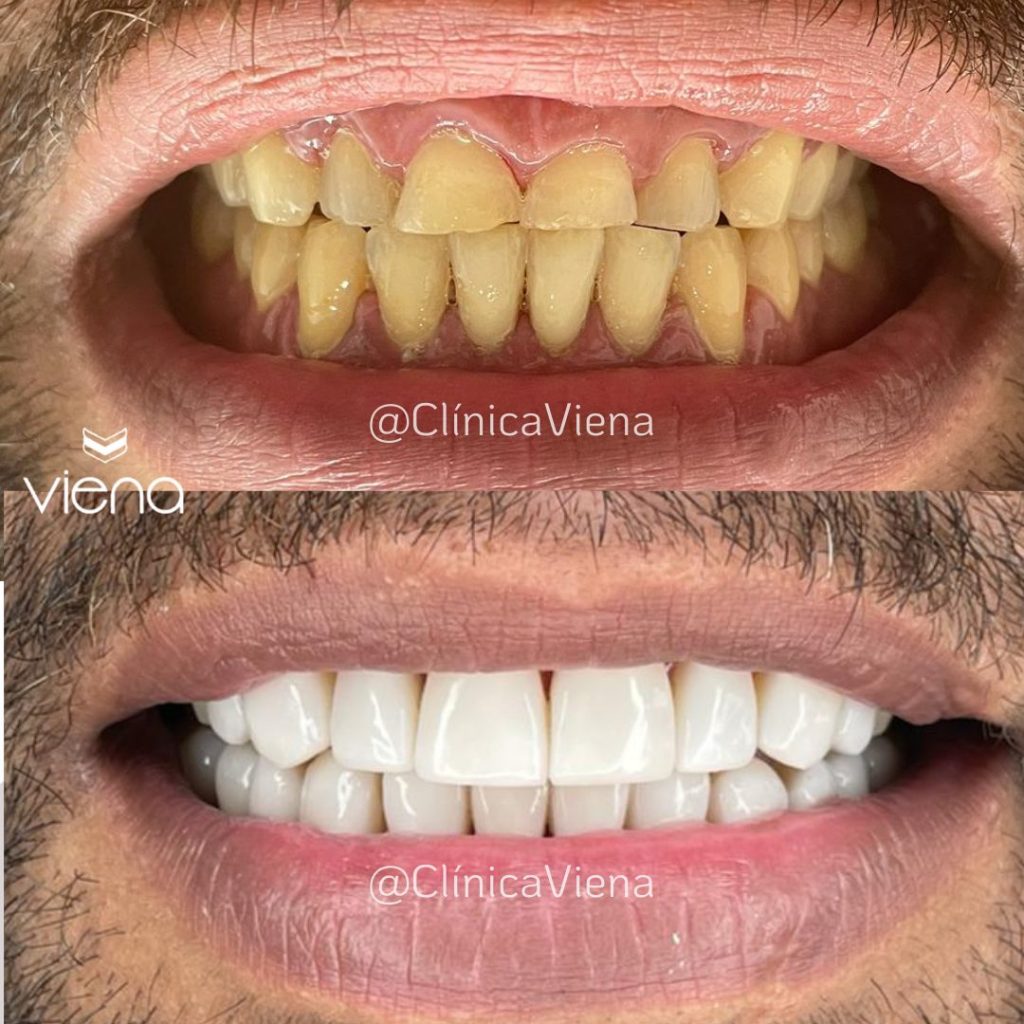
- Before: Chipped and stained teeth
- After: Smooth, white, and aligned smile

- Before: Gaps and uneven teeth
- After: Perfectly spaced and uniform teeth
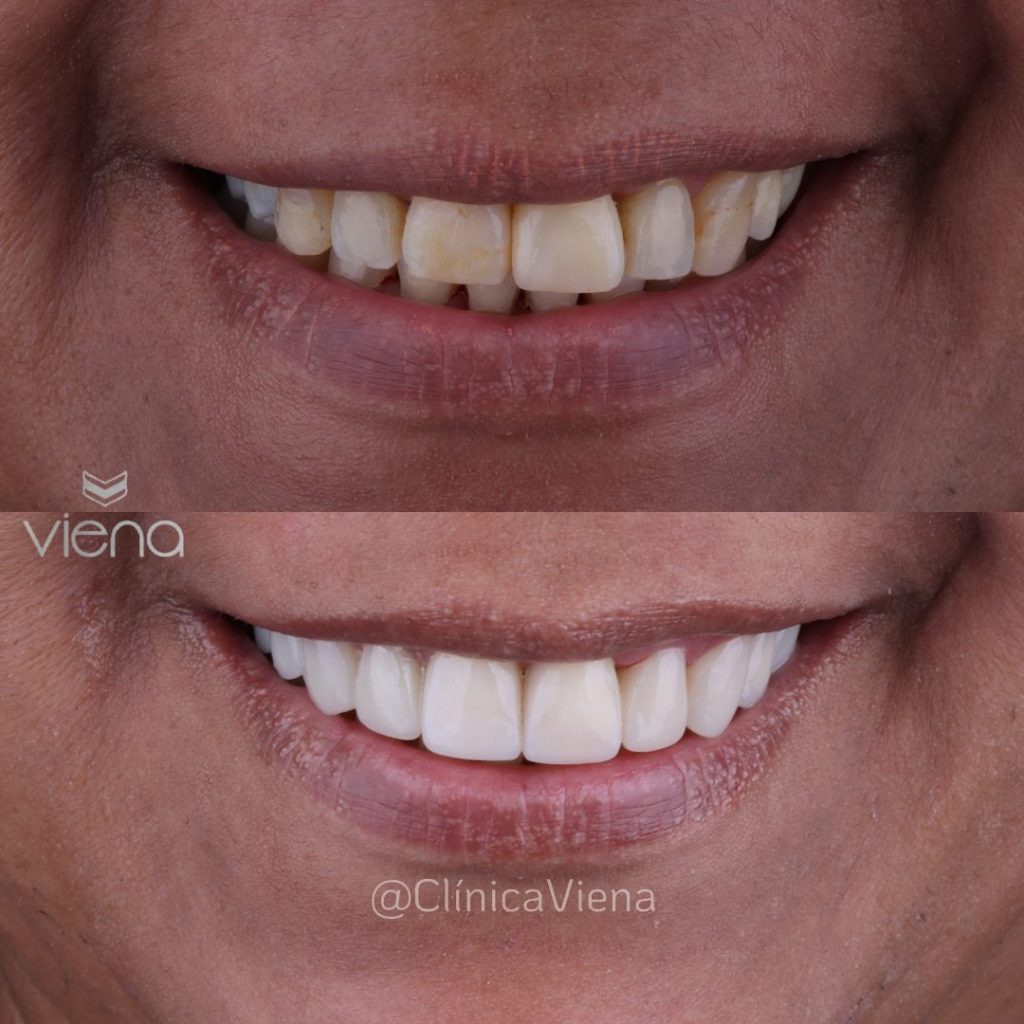
- Before: Worn and discolored teeth
- After: Natural-looking, bright smile
Dra. Sara Pelaez Monsalve
You might also be interested in:
Are Veneers Bad for Your Teeth? Risks, Myths, and Real Benefits
In the pursuit of a perfect smile, veneers have become...
Leer másDo Veneers Hurt? Expert Cosmetic Dentist’s Honest Answer
In the pursuit of a perfect smile, veneers have become...
Leer másHow Long Does a Dental Implant Take? Expert Dentist Answers
In the pursuit of a perfect smile, veneers have become...
Leer másWhy No Dairy After Dental Implant? What Science Really Says (2026)
In the pursuit of a perfect smile, veneers have become...
Leer más

